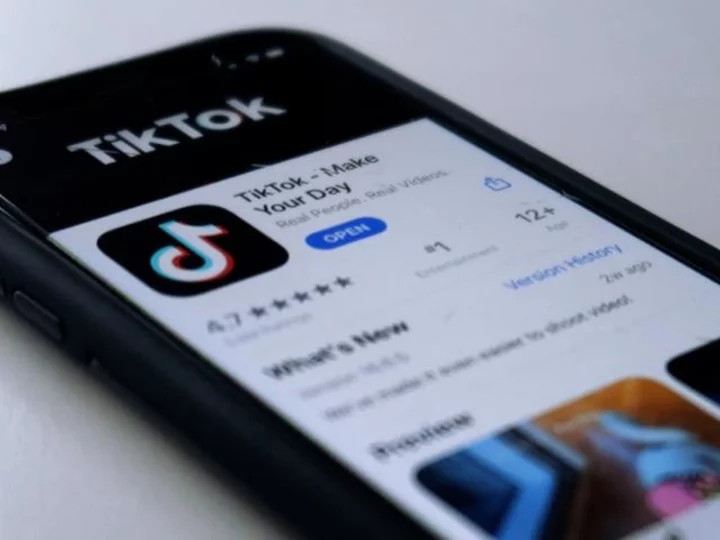Texas's ban on TikTok at state institutions violates the First Amendment, claims a lawsuit filed Thursday by a group of academics and civil society researchers.
The Knight First Amendment Institute at Columbia University filed the lawsuit on behalf of the Coalition for Independent Technology Research, -- which works to study the impact of technology on society. The lawsuit specifically challenges Texas' TikTok ban in relation to public universities, saying it compromises academic freedom and impedes vital research.
Some critics and a growing number of US lawmakers on both sides of the aisle view TikTok as a threat, since it is owned by China-based company ByteDance. Many US officials have expressed fears that the Chinese government could spy on US data via TikTok, though there is so far no evidence that the Chinese government has ever accessed personal information of US-based TikTok users.
"The ban is not just ineffective but counterproductive. It's impeding researchers and scholars from studying the very things that Texas says it's concerned about — like data-collection and disinformation," Jameel Jaffer, executive director of the Institute, told CNN.
The lawsuit cites the example of a University of North Texas researcher who studies young people's use of social media, who has been forced to abandon research projects that rely on university computers and to remove material about TikTok from her courses.
Texas Governor Greg Abbott ordered all Texas state agencies to ban the use of TikTok in early December. The order required all state agencies, including public universities, to bar employees from downloading or using TikTok on state-owned or -issued devices, "including cell phones, laptops, tablets, desktop computers, and other devices capable of Internet connectivity." In the order, the governor highlighted his responsibility "to preserve the safety and cybersecurity of Texans" in light of the threat of the Chinese Communist Party gaining access to critical US information and infrastructure.
The Knight Institute lawsuit notes that Texas has not imposed a ban on other online platforms that collect similar user data, such as Meta and Google.
It further argues that a ban doesn't "meaningfully" constrain China's ability to collect sensitive data about Americans, because this data is widely available from other data brokers.
"It's entirely legitimate for government officials to be concerned about social media platforms' data-collection practices, but Imposing broad bans on Americans' access to the platforms isn't a reasonable, effective, or constitutional response to those concerns," Jaffer told CNN.
"Like it or not, TikTok is an immensely popular communications platform, and its policies and practices are influencing culture and politics around the world," said Dave Karpf, a Coalition for Independent Technology Research board member and associate professor in the George Washington University School of Media and Public Affairs. "It's important that scholars and researchers be able to study the platform and illuminate the risks associated with it. Ironically, Texas's misguided ban is impeding our members from studying the very risks that Texas says it wants to address."
Texas is one of several states that have passed limited bans on TikTok. Montana passed a statewide ban for all users in May 2023. That bill, which will take effect in January, specifically names TikTok as its target, prohibits the app from operating within state lines. The law also outlines potential fines of $10,000 per day for violators, including app stores found to host the social media application. Two lawsuits have been filed challenging that law, one by TikTok and another by TikTok users.
TikTok told CNN last month that it is funding the suit by users and creators on the platform.

